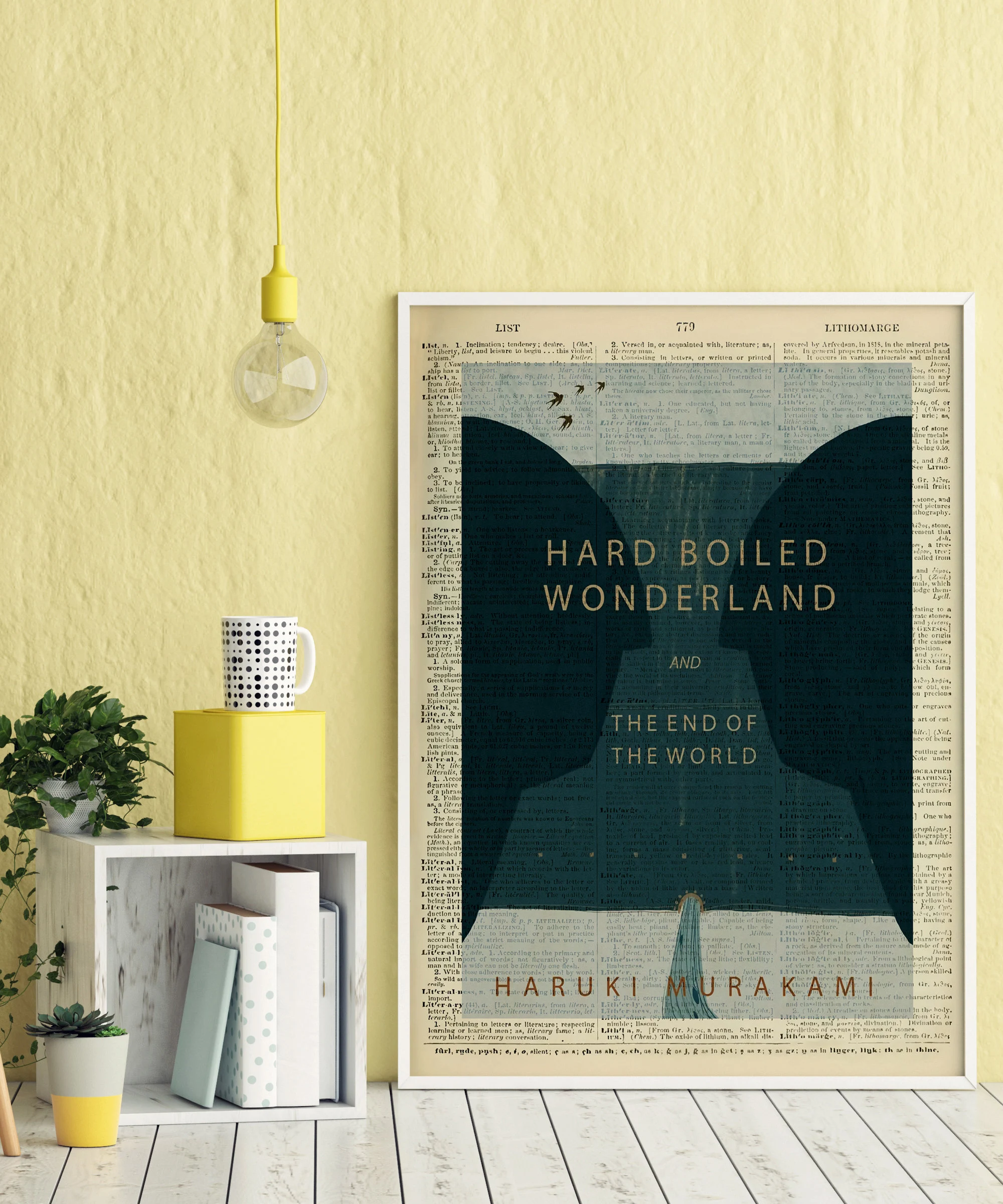
Hard-Boiled Wonderland and the End of the World
I’m in awe. Hard-Boiled Wonderland and the End of the World hit Japan in 1985—forty years ago—and somehow it still feels fresher, wilder, and more emotionally gripping than most books I’ve ever read. That kind of timelessness? Pure Haruki Murakami magic.
I’m honestly kicking myself for waiting so long to dive into this one. Forty years? Really? This is Murakami—one of my all-time favorite authors, and probably the reason I ever found the courage to write in the first place—and yet I only got to it in Brazil, March 2025, when the Portuguese translation dropped. It felt like fate calling. Sometimes the right book doesn’t just find you—it waits patiently until you’re ready.
He doesn’t write to dissect reality—he moves through it intuitively, as if following the emotional shape of things rather than their logical structure. His stories don’t depend on rigid world-building or neat explanations. Instead, they unfold with a kind of dream logic—strange, fluid, and often inexplicable, yet deeply resonant.
In Hard-Boiled Wonderland, that duality is at the heart of the novel. One narrative pulses through a shadowy, near-future city—fast-paced, cerebral, electric. The other drifts through a quiet, enclosed town where time feels suspended, and everything moves with dreamlike slowness. They seem like opposites: one sharp-edged, the other hushed. Yet both are guided by the same emotional current, exploring memory, identity, and inner life in different registers. Together, they create a strange, beautiful symmetry—hard to explain, but easy to feel.
These worlds don’t just alternate—they lean toward each other, weaving a meditation on consciousness, memory, identity, and the quiet tension between internal life and external structures. What emerges isn’t a mystery to be solved, but a feeling to inhabit—an atmosphere that lingers long after the final page.
So how does a book from four decades ago feel like it was written yesterday? Maybe because Murakami never wrote for his own time. His work drifts just outside it, as though he’s writing from a quiet corner of the future, reaching into the emotional weight we carry in our bones—disconnection, longing, the porousness of the self.
This novel speaks to our moment in ways that feel unintentional but precise. It explores themes that hit harder now than in 1985: mental health, memory, the fragmented self, the erosion of privacy, the ache of a world slightly out of sync. And it does so without fanfare, without preaching. It just holds these things up to the light and lets them shimmer.
What also struck me is how easily this novel blends genres—not as a gimmick, but as a natural expression of its inner life. Science fiction, noir, fantasy, and philosophy flow into one another without drawing attention to their borders. The result is narrative alchemy—seamless, surprising, quietly radical. Long before it was trendy, Murakami was writing books that didn’t ask to be categorized, only felt.
And maybe most importantly, this book honors the internal world. It gives as much weight to a fleeting thought or ambient feeling as to any external plot point. He writes with the intuition that what happens inside us is just as meaningful as what happens around us—maybe more so.
He doesn’t just write stories. He bottles something ephemeral and human—the drift between sleeping and waking, the ache of remembering something you never really experienced. And this novel? It’s proof Murakami’s been writing from the future all along.
Image courtesy of Haruki Murakami
Comments are closed.